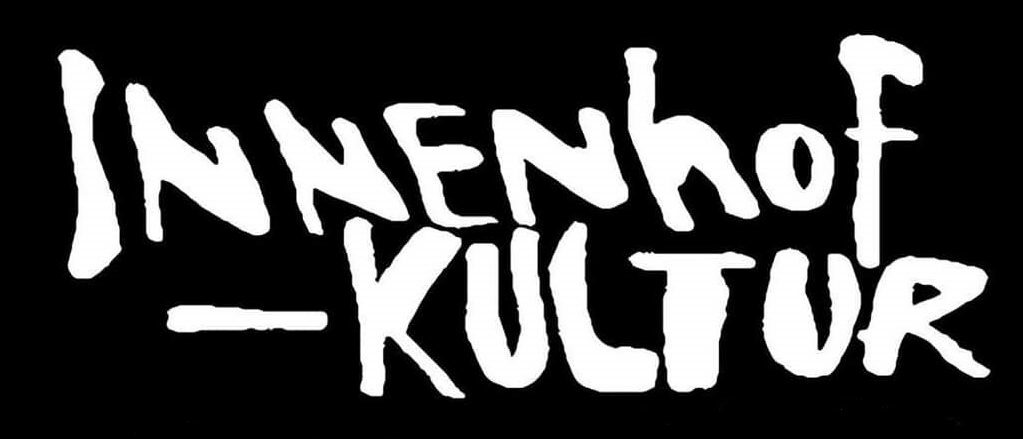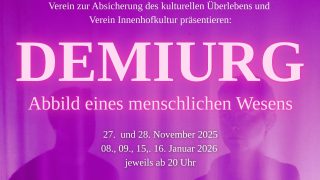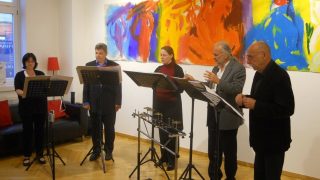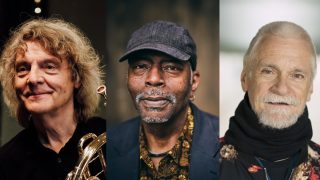DEJAN TERZICs UNDERGROUND
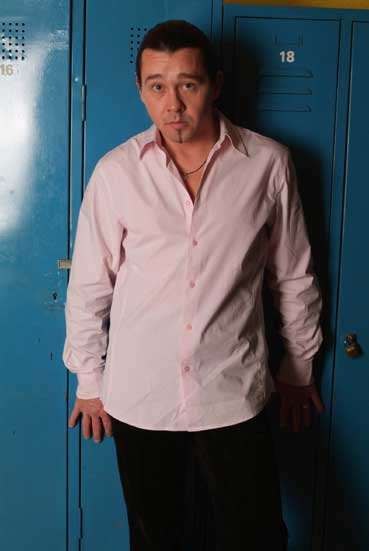
Chris Speed – saxophone, clarinet ( USA)
Frank Möbus – guitar (Germany)
Mark Helias – double bass (USA)
Dejan Terzic – drums (Germany/Bosna)
…all of a sudden we are thrusted into the heart of the balkan genius, into his sweet irresistible confusion of feelings, where people are, at the same time, laughing, crying,singing, between an ironic thoughtlessness and an exacerbated sentimentalism- life is a permanent and opencast complete theater, with its intense dramas, its unutterabel joys and, always, omnipresent, this beautiful nostalgia that never overloads itself….a few bars filled with pure, joyful melancholy…
The German Drummer and Cultural Prize Winner Dejan Terzic is presenting his current new project „Underground“. The central starting point of the musical interpretation are the folkloristic disclosures of the Balkan Area – music from Ex-Yugoslavia.
In the folkloric Tradition, most of that music is played with a traditional Brass Band, and mainly got widerly known through a popular Movie, directed by Emir Kusturica, called Underground.
The music for the film was not the only fond of Inspiration for Realizing this Project.
Dejan Terzic, beeing born in former Yugoslavia, also felt the need, at a certain point of his carreer, to start discovering and analyzing his musical roots, and transform these roots into the realms of modern Interpretation.
As a „Jazz“Drummer he has worked with many international acclaimed artists, such as Lee Konitz, Attilla Zoller, Bob Berg and George Garzone, and European Artists like Enrico Rava, Franco Ambrosetti and Antonio Farao.
Mark Helias is probably one of the most interesting Bassplayers in the Music world today. He has worked for almost two decades with drummerlegend Ed Blackwell, and is also known from Bassdrumbone, with Ray Anderson and Gerry Hemmingway.
Chris Speed is another outstanding musician, has worked with Dave Douglas,Tim Berne, Uri Caine, Jim Black. Through his experience he has developed a voice of his own, also through the work with „Pachora“, and meanwhile he is one of the most demanded saxophoneplayer in the scene today.
Frank Moebus is known from his work with the German Group called „Der Rote Bereich“, which acclaimed international success in the European Jazzfield.He has also worked with Ray Anderson, Kenny Wheeler, Hal Crook and Jim Black, and has established himself as an outstanding guitarist.
REZENSIONEN
„Bei dem kammermusikalischen Trio spürte man den unmittelbaren Zauber der aus dem Augenblick heraus improvisierten Musik. Kunstvoll verarbeiten sie Elemente der Folklore ihrer Heimat am Schwarzen Meer. Sie spielten kleine folkloristische Motive weiter und gingen mit wachen Ohren experimentierfreudig aufeinander ein … für die meisten Festivalbesucher sicher die größte Entdeckung.“
Udo Hinz / Jazz Podium
„Black Sea Trio faszinierte mit einer unlöslichen Verbindung von Rhythmen und Melodien, Free Jazz und osteuropäischer Folklore, Anklängen an Balalaika-Ensembles wie an asiatische Musik.“
Godehard Lutz / Jazz Podium
Der lebhafte musikalische Dialog ist geprägt von einem tiefen Einverständnis und frei von Nivellierungsbestrebungen. Die Individualität dreier unterschiedlicher osteuropäischer Landsmänner trifft sich in einem unangestrengten Kräftespiel, das im höchsten Maße produktiv ist und Harmonie ausstrahlt.
Stefan Michalzik / Frankfurter Rundschau
